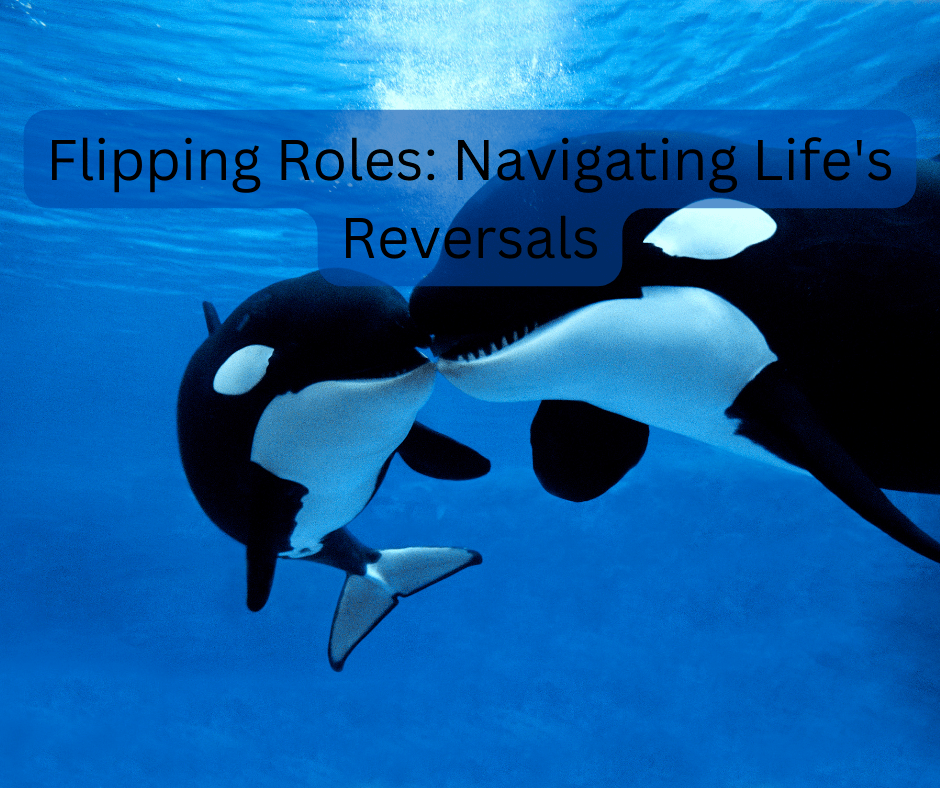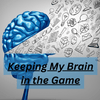Flipping Roles: Navigating Life's Reversals

Flipping Roles: Navigating Life's Reversals
Flipping Roles: Navigating Life's Reversals
Life often unfolds in predictable patterns. Children depend on parents. Parents age and may later depend on their children. But sometimes, life throws us a curveball that disrupts this flow. A diagnosis. A setback. A reality shift. Suddenly, you are no longer the caretaker—you are the one being cared for. This is the essence of life's reversals.
When illness strikes unexpectedly, roles reverse. The emotional toll of needing your parents again—physically, emotionally, practically—can be disorienting. It goes against everything we imagine adulthood to be. But here is the truth: these reversals are not signs of weakness. They are opportunities to deepen trust, connection, and understanding within our families.
Embrace Vulnerability
We often resist the idea of being cared for, especially by the people we once felt responsible for. There is a pride that comes with adulthood, with independence. But life’s reversals ask us to look at vulnerability differently. Letting someone help you—especially someone you love—does not take away your strength. It shows courage and mutual respect.
Accepting care from your parents as an adult, especially during illness, is not regression. It is trust. It is an acknowledgment of the bond you built together over decades. It is a new way of loving each other.
Open Communication
One of the most important things you can do during this transition is talk. Speak openly with your parents about your needs, your fears, and your boundaries. When roles change, unspoken expectations can create friction. But clear communication prevents confusion and allows both sides to adjust with grace.
Let your parents know when you need help and when you need space. Honor their desire to care for you while still voicing your preferences. Communication turns difficult moments into shared understanding.
Mutual Respect in Caregiving
Caregiving in life’s reversals must be mutual. Even when one party is ill, respect remains central. Be grateful, be vocal, and stay involved in your own care whenever possible. When your parents take on a more nurturing role again, they are also navigating emotional terrain. They may feel helpless or afraid. Meeting them with appreciation and calm helps both of you.
Decisions about your care, your routines, or your medical plan should include your input. Your agency matters. Mutual respect helps everyone feel seen and heard—even in a dynamic that feels unfamiliar.
The Personal Impact of Role Reversals
My Own Shift
As a son, I always prided myself on being the one who stepped in. I hung the Christmas lights, lifted the heavy boxes, and gave my parents peace of mind. But when I was diagnosed with cancer, everything changed. Suddenly, it was their turn to care for me. That shift was not just physical—it was emotional.
I found myself leaning on them in ways I had not since childhood. It was humbling. It was vulnerable. But it was also beautiful. Because in those moments, I felt the full circle of love. I felt what it meant to be supported without shame, to be reminded that needing someone does not make you less—it makes you human.
The Natural Cycles of Dependence
What We Share With Orcas
Humans are unique in the length and complexity of our parental bonds. But we are not the only ones. Orcas, for instance, live in tightly knit matrilineal groups. Female orcas remain with their mothers for life. Generations support each other through every stage of living.
That kind of interdependence is not weakness—it is wisdom. It shows that survival is not about going it alone. It is about coming back to the nest when needed, about knowing you will be welcomed with open arms.
In a culture obsessed with independence, we often forget that true strength comes from connection. Life’s reversals remind us of that. They return us to our roots. And they challenge us to see caregiving not as a burden, but as a sacred act of love.
Finding Peace in the Shift
There is no perfect way to handle role reversals. They bring emotion, uncertainty, and logistical challenges. But they also bring clarity. They reveal the depth of our bonds. They force us to slow down and notice what matters.
As I go through this cancer journey, I have come to realize how deeply I still need my mother. At 47 years old, I have never needed her more. Her strength, her presence, her quiet reassurance—it grounds me. And it reminds me that even in reversal, there is love. There is meaning.
Final Thoughts
Whether it is cancer, aging, or unexpected change, life’s reversals will come. The roles we play with our loved ones will shift. And it will be hard. But it will also be honest. It will be rich with emotion. And it will teach us to love in deeper, more generous ways.
So if you are facing a reversal—if your parent is caring for you now, if you feel vulnerable or unsure—know this: you are not broken. You are evolving. You are rediscovering the strength of your bonds. And you are showing the world that care goes both ways. Always has. Always will.
Helpful Resources
- The Cycle of Dependence – Psychology Today
- When Your Parent Becomes Dependent – FCA
- More from JohnVsGBM
Tags: Life's Reversals, Role Reversal, Caregiving, Cancer and Family, Parent and Child Bonds, Terminal Illness, Emotional Support, Vulnerability, JohnVsGBM Blog


 NEW ARRIVALS
NEW ARRIVALS APPAREL
APPAREL GIFT AND HOME
GIFT AND HOME COLLECTION'S
COLLECTION'S HOPE HUB
HOPE HUB BLOG
BLOG



